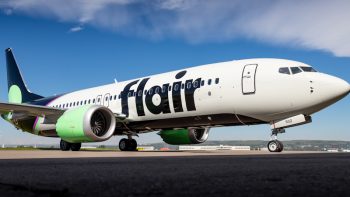
The number of Canadian pilots looking to work in the U.S. tripled over the course of 2022, reports Reuters. The figures, which come from previously unreleased U.S. Federal Aviation Administration (FAA) data, come amid staff shortage and labour action from pilots across Canada.
According to FAA data, around 147 Canadian pilots applied for licenses to fly commercial jets in the U.S. in 2022, up from 39 in 2021. The number of foreign applications doubled to around 1,442. No data has been provided for applications in 2023.
According to Reuters, high travel demand and pilot wage increases are attractive to foreign aviators. When WestJet pilots issued their strike notice in JUN 2023, union representatives from the Airline Pilots Association International (ALPA) pushed for a “North American / industry-standard contract,” which would narrow the gap between wages at WestJet and other airlines in North America, particularly those in the U.S. As reported by Open Jaw, WestJet pilots secured a 24 per cent hourly raise over 4 years. Earlier in 2023, Delta's pilots secured a 34 per cent pay increase over a four-year period.
Reuters also notes that these numbers could put pressure on Air Canada's negotiations with its own pilots, whose contract expires on 29SEP. As previously reported by Open Jaw, Air Canada pilots, represented by the Air Line Pilots Association (ALPA), initiated negotiations 1 year ahead of their initial 2024 contract termination.
While small, industry expert John Gradek, a faculty lecturer in aviation management at McGill University in Montreal, notes that the increase in U.S. applications is concerning for regional Canadian carriers, who are dealing with staff shortages as they lose pilots to larger airlines. Gradek added that the "cascading effect" of pilots leaving smaller carriers for larger airlines would lead to reduced frequencies and service cuts on regional routes.
John McKenna, chief executive of the Air Transport Association of Canada (ATAC), says members are already cutting frequencies due to staffing shortages.





